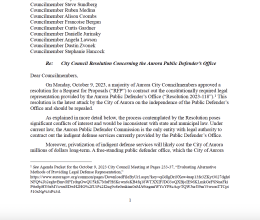The bill amends the petition process for sealing certain drug offense criminal conviction records. The time period the defendant has to wait to petition the court to seal the record depends on the severity of the offense. In order to have the record sealed, the defendant must show the court that he or she has not been convicted of another offense or been charged with another offense since the discharge of the offense for which the defendant is seeking to have sealed. The district attorney has the right to object to the petition or veto the request for all offenses except petty offenses. Also depending on the severity of the offense, the court can immediately order the record sealed, can consider the petition based on established criteria, or can hold a hearing to decide the petition. The court, in making the decision whether to seal conviction records, considers the privacy interests of the defendant against the public interest in retaining the conviction records as open records. Conviction records cannot be sealed if the defendant still owes court-ordered restitution, fines, or fees. A defendant who successfully petitions a court for the sealing of conviction records must provide the Colorado bureau of investigation (bureau) and each custodian of the conviction records with a copy of the court's order to seal the conviction records and pay to the bureau any costs related to the sealing of the conviction records in the custody of the bureau.
Employers and certain institutions and agencies are prohibited from requiring an applicant to disclose information in sealed conviction records. Law enforcement will report that there are no public records in response to inquiries about sealed criminal conviction records. The office of the state court administrator must post on its web site a list of all petitions to seal conviction records that are filed with a district court. The bill prohibits a district court from granting a petition to seal conviction records until at least 30 days following the posting.
The sentencing court, the probation department, and the defendant's parole officer must advise the defendant of the right to seal conviction records under the appropriate circumstances.
The provisions of the bill apply to convictions entered on and after July 1, 2011. For convictions prior to July 1, 2011, the time frames of the bill are applicable but sealing of the criminal records is available only with the consent of the district attorney and subsequent court review and approval.
Year
2011
Current status
- 02/02/2011 Introduced In House - Assigned to Judiciary
- 02/24/2011 House Committee on Judiciary Refer Unamended to House Committee of the Whole
- 02/28/2011 House Second Reading Special Order - Passed
- 03/01/2011 House Third Reading Passed
